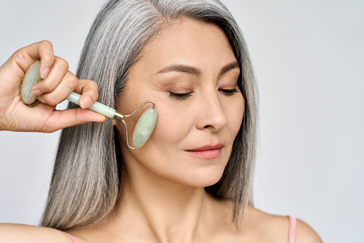Collagen Bread
Posted by Mike Miryala on

Collagen bread is a type of bread that is made by incorporating collagen protein powder into the dough. Collagen is a structural protein that is found in the skin, bones, and connective tissues of animals. It is commonly used as a supplement for its potential benefits for skin, hair, joints, and gut health.
When it comes to low-carb diets, collagen bread can be a suitable option for those looking to reduce their carbohydrate intake while adding protein to their diet. Here are some considerations regarding collagen bread on low-carb diets:
- Reduced Carbohydrate Content: Collagen bread recipes often use low-carb flour like almond flour, coconut flour, or flaxseed meal as alternatives to traditional wheat flour. These low-carb flours have lower carbohydrate content and are often higher in fiber and healthy fats, making collagen bread a potentially lower-carb option compared to regular bread.
- Increased Protein Content: Collagen protein powder, which is derived from animal sources, is added to the bread dough. This boosts the protein content of the bread, which can be beneficial for individuals following a low-carb diet, as protein helps promote satiety, support muscle health, and assist with overall nutrient balance.
- Potential Benefits of Collagen: Collagen supplementation has been associated with various health benefits, including improved skin elasticity, joint health, and gut health. While collagen powder is typically used for these benefits in supplement form, incorporating it into collagen bread may provide a small additional collagen intake.
It's important to note that the exact nutritional composition of collagen bread can vary depending on the specific recipe and ingredients used. When incorporating collagen bread into a low-carb diet, it's essential to consider portion sizes, overall macronutrient balance, and individual dietary needs.
When incorporating collagen into a low-carb diet, it's essential to consider a few factors:
- Collagen Source: Collagen can be obtained from different animal sources, such as bovine (cow), marine (fish), or porcine (pig). Choose a collagen product that aligns with your dietary preferences and any ethical or religious considerations.
- Added Ingredients: Some collagen supplements or powders may contain additional ingredients, such as flavors, sweeteners, or additives. Opt for high-quality collagen products with minimal or no added sugars or artificial ingredients to keep your low-carb diet on track.
- Overall Diet Balance: While collagen can be a beneficial addition to a low-carb diet, it should not be the sole focus. Ensure you are also consuming a variety of other nutrient-dense, low-carb foods, including vegetables, healthy fats, and other sources of protein.

Collagen Bread
Prep Time: 10 minutes
Cook Time: 30 minutes
Yield: 1 loaf (8 slices/servings)
Category: Breakfast, Snack
Cuisine: American
Ingredients:
- 1/2 cup (80 g) unflavored collagen peptides
- 1/2 cup (56 g) coconut flour
- 1 teaspoon (2 g) baking powder
- 1/2 teaspoon (2 g) xanthan gum
- 1/2 teaspoon (3 g) salt
- 4 large eggs, lightly whisked
- 1/4 cup (60 ml) unsweetened almond milk
- 2 Tablespoons (30 ml) olive oil
Instructions:
- Preheat the oven to 350°F (175°C). Line a loaf pan with parchment paper and set aside.
- Combine the unflavored collagen peptides, coconut flour, baking powder, xanthan gum, and salt in a large bowl.
- Add the whisked eggs, unsweetened almond milk, and olive oil to the bowl and combine until smooth. Spread the dough in the prepared loaf pan.
- Place the loaf pan in the oven and bake for 30 to 35 minutes until the loaf is golden and a toothpick inserted into the center comes out clean.
- Remove from the oven and let the loaf cool completely. Remove the cooled loaf from the pan before slicing.
- Store leftover bread in a sealed container for 2 to 3 days.
Nutrition: (Estimated and based on per-serving amounts.)
- Calories: 138
- Fat: 6 g
- Total Carbs: 3 g
- Fiber: 2 g
- Sugar: 1 g
- Net Carbs: 1 g
- Protein: 13 g






